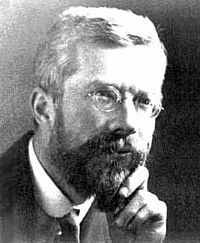Null hypothesis facts for kids
A null hypothesis is a starting idea in science experiments. It's like saying, "Nothing special is happening here." Scientists use it to see if their experiment shows something new or different. If the experiment doesn't prove the null hypothesis wrong, it means there's no strong evidence for a change or a new discovery. The term was first used by Ronald Fisher in his book The design of experiments.
Contents
What is a Null Hypothesis?
In statistics, a null hypothesis is a basic assumption that there is no relationship or difference between two things being tested. Think of it as the "default" idea. For example, if you're testing a new type of plant food, the null hypothesis would be that the new food has no effect on plant growth. Scientists try to find evidence that goes against this null hypothesis. If they find enough evidence, they can then say something new is happening.
Why Do Scientists Use It?
Scientists use a null hypothesis to make sure their experiments are fair and clear. It helps them avoid jumping to conclusions. By starting with the idea that "nothing is happening," they need strong proof to show that something actually is. This makes scientific discoveries more reliable. It's a key part of the scientific method.
Null Hypothesis Examples
Every experiment starts with a null hypothesis. Here are some examples:
- If you test a new medicine, the null hypothesis is that the medicine does not make people healthier.
- If you want to know if people like chocolate or vanilla ice cream more, the null hypothesis is that people like them equally.
- If you compare how well boys and girls play piano, the null hypothesis is that boys and girls are equally good at playing the piano.
- If you try a new study method, the null hypothesis is that the new method does not improve test scores.
Null vs. Alternative Hypothesis
The opposite of a null hypothesis is an alternative hypothesis. This is the idea that something is happening, or that there is a difference or relationship. It's what the scientist usually hopes to prove.
Here are the alternative hypotheses for the examples above:
- This medicine makes people healthier.
- People like chocolate ice cream better than vanilla ice cream.
- Girls are better at playing the piano than boys.
- The new study method improves test scores.
Scientists collect data and use statistical tests to decide if they have enough evidence to "reject" the null hypothesis. If they reject the null hypothesis, it means they have found support for the alternative hypothesis.
How Do Scientists Test Hypotheses?
When scientists do an experiment, they collect information, called data. They then use special math tools, called statistical tests, to look at this data. These tests help them figure out if the results they see are likely just by chance, or if they are truly caused by what they changed in the experiment.
If the results are very unlikely to happen by chance, then the scientists might say they have found "significant" evidence. This means they can reject the null hypothesis and support their alternative hypothesis. If the results could easily happen by chance, they cannot reject the null hypothesis. This doesn't mean the null hypothesis is true, just that there isn't enough evidence to say it's false.
See also
 In Spanish: Hipótesis nula para niños
In Spanish: Hipótesis nula para niños
 | James Van Der Zee |
 | Alma Thomas |
 | Ellis Wilson |
 | Margaret Taylor-Burroughs |


